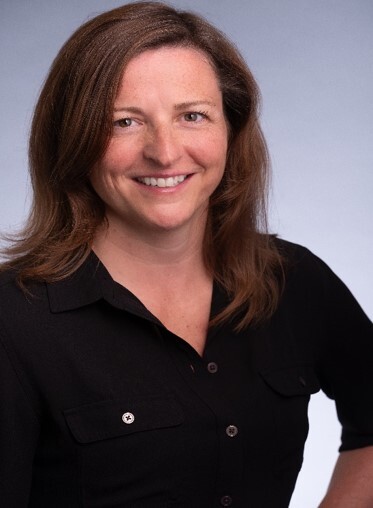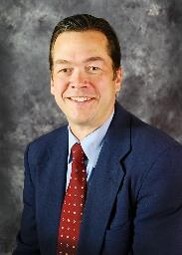
Effective Pump Intake Design and Troubleshooting Problem: Background, Design Objectives, and Using the Standard
-
Register
- Non-member - $119
- Member - $89.25
- Associate Member - $89.25
- Academic Partner - $113.05
- PSAP Industry Partner - $113.05
- Pump Industry Partner - $113.05
- Pump Industry Partner Retiree - $113.05
- Standards Partner - Consultant - $89.25
- Standards Partner - End User - $89.25
- Standards Partner - End User & Basic Training - $89.25
- Training Partner - $89.25
Effective Pump Intake Design and Troubleshooting Problem: Background, Design Objectives, and Using the Standard
PDH Credits: 1
Part 1 of 4-Part Webinar Bundle
Overview:
This webinar is based on the Hydraulic Institute’s Intake Design for Rotodynamic Pumps ANSI/HI 9.8 Standard, which enables designers, owners, and users to configure functional pumping facility designs and provides remedial measures for problematic intakes. The webinar offers an overview of intake design considerations, available tools, and historical context, delving into potential issues and outlining specific design objectives with references to Section 9.8.2 and Appendix H for modification guidance. The session concludes with a summary of standard utilization across various intake configurations, followed by a Q&A session
Learning Level - Advanced:
Advanced level training is designed for individuals with a strong foundational knowledge and experience who seek to enhance their broad skills and knowledge. Advance training delves into complex concepts, analysis, design, optimization, and problem solving.
It is recommended that attendees have intermediate level knowledge or complete intermediate level training prior to attending this course.
Audience:
Individuals with a technical background, who have basic and intermediate level knowledge on pumps and systems, including experience technical sales, system designers, and engineers.
Learning Objectives:
Upon completion, learners should be able to:
- Assess intake design factors including new or existing setups, liquid properties, client needs, site constraints, pump specifications, intake configuration, and hydraulic conditions.
- Identify and evaluate available tools for intake design, including experience, modeling through CFD or physical model studies, and reference materials such as ANSI/HI 9.8 and ANSI/HI 9.6.6.
- Understand the background and history of ANSI/HI 9.8, its design recommendations for different intake types, and the flexibility it allows through physical model testing, along with informative appendices for considering factors beyond standard sump design.
- Identify and explain the negative consequences of intake design issues, including vortices, excessive pre-swirl, non-uniform velocity distribution, excessive turbulence, air entrainment, and solids/sediment accumulation.
- Delineate design objectives for both new intake design and modification of existing designs, including considerations outlined in Section 9.8.2 and Appendix H, and utilize the standard effectively through the provided flow chart with a guide to relevant sections.
SKU: LW701B
Webinar Instructions
- Click the Contents tab and select "View Live Webinar". After the live webinar is completed, return to the Contents tab.
- Click "Complete Quiz for Live Webinar" to answer quiz questions. You will have 10 attempts and must get at least 80% correct to proceed. After completing the quiz, return to the Contents tab.
- For webinar series, continue this process until you complete all the webinar sessions.
- Click "Complete Webinar Evaluation" to provide your feedback on the webinar to PSM. Scroll down to view all feedback questions, there are questions that expand past the size of the window.
- Click the button “View/Print Your Certificate” in the box titled “Claim Credits & Certificate to save or print your certificate of completion. If you ever lose your certificate, you can come back to the PSM website and view it on your transcript (found in the Dashboard).
Need Assistance?
If you are experiencing any log in issues, cannot access a course, need assistance claiming credit, or have other questions or concerns, please e-mail training@pumps.org for assistance.

Kara Hurtig, P. Eng., MSc.
Principal
Northwest Hydraulic Consultants (NHC)
Ms. Hurtig is a Principal at Northwest Hydraulic Consultants with over 25 years of experience in hydraulic modeling. She holds a BSc in Civil Engineering and MSc in Water Resources Engineering. She has a strong technical background and significant experience in managing hydraulic design projects, physical model studies, and CFD model studies. Her clients include government agencies, power utilities, AE firms, and equipment manufacturers located across North America and Internationally. She has been an active member of the Hydraulic Institute Pump Intake and Pump Piping Design Standards committees since 2014.

Andy Johansson
Director of Hydraulic Modeling
Verdantas Flow Laboratory
Mr. Johansson is the Associate Vice-President of Physical Modeling at Verdantas Flow Laboratory with over 30 years of experience in hydraulic modeling. He obtained his B.S. degree in Mechanical Engineering in 1995, from Worcester Polytechnic Institute and is currently in charge of the day-to-day operations of the hydraulic modeling group. He provides supervision of all stages of numeric and physical model studies for electric power utilities, water supply and treatment, architect-engineering firms, equipment manufacturers and governmental agencies. He is an active member of the Hydraulic Institute Pump Piping Committee and is the current Vice Chair for the Intake Design Committee.
PDH Credits
One (1) PDH credit will be issued upon completion of this live webinar series.
The acceptance of continuing education as it applies to fulfillment of the state licensing requirements for professional designations is at the pleasure of the individual state licensing boards. It is the responsibility of the individual participants to be knowledgeable about their state requirements.
Licensed Professional Engineers
Continuing professional development is a vital component to the engineering licensure process. Most state licensing boards require continuing professional development as a condition for licensure and renewal of the license to practice engineering. Pre-approval of training providers and courses are not required by most state licensing boards, except for the following:
Florida Board of Professional Engineers
Pump Systems Matter is a board-approved continuing education provider for the Florida Board of Professional Engineers: License # CEA361.
North Carolina Board of Examiners for Engineers and Surveyors
Pump Systems Matter is an approved continuing professional competency sponsor for the North Carolina Board of Examiners for Engineers and Surveyors: Sponsor # S-0523.
New York State Board for Engineering, Land Surveying, and Geology
Pump Systems Matter is approved as a sponsor of continuing education for professional engineers in New York State: NYS Sponsor # 241.
